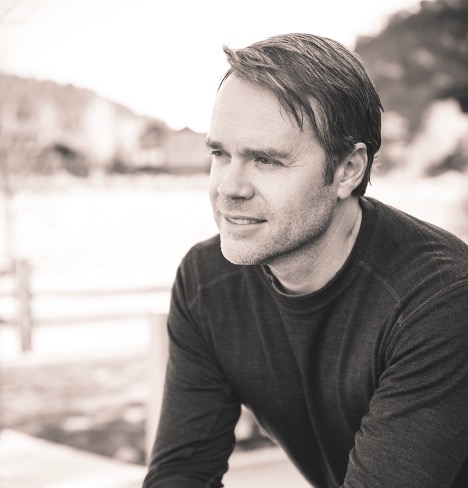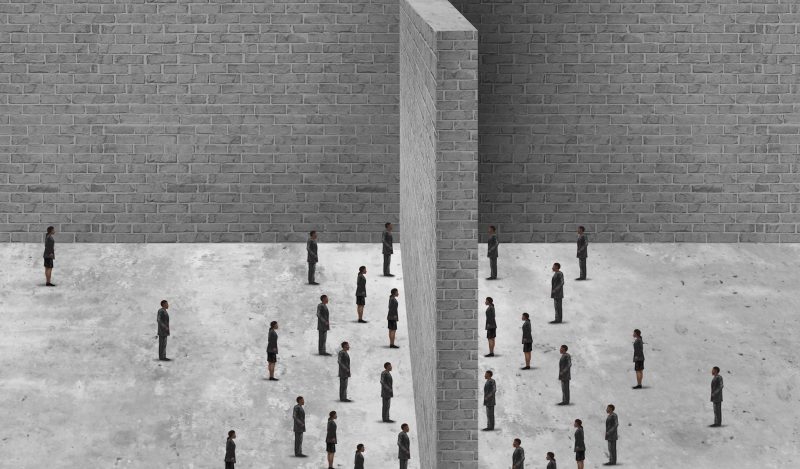French President Emmanuel Macron gave a speech not long ago in which he made a rather shocking prediction about the future of his nation and presumably the rest of the world.
“What we are currently living through is a kind of major tipping point or a great upheaval … we are living the end of what could have seemed an era of abundance … the end of the abundance of products of technologies that seemed always available … the end of the abundance of land and materials including water….”
The G7 leader’s words of warning about the literal end of material prosperity caught my eye in a way that most headlines do not. I also noticed that Paris switched off the lights on the Eiffel Tower to save a meager amount of electricity, providing a potent symbol to underscore Macron’s message about the “End of Abundance.”
In this era of economic chaos, disrupted supply chains, ruinous inflation, a severe energy crunch in Europe, tensions between nuclear superpowers, and extreme political polarization, plus intense worries (in some quarters, at least) about climate change, there are emerging signs of a belief in the once unthinkable: the possibility that Progress with a capital “P” may no longer be assured.
It should be obvious at this point that Covid-19 lockdowns and related pandemic policies, including the printing of trillions of dollars to paper over the intentional disruption of society, played a major role in bringing about today’s negative economic conditions. These conditions could last a very long time, particularly considering the mild political blowback to Covid chaos that we saw during the midterm elections. Brownstone’s Jeffrey Tucker has written about the potentially far-reaching effects of lockdowns:
“But what if we aren’t really observing a cycle? What if we are living through a long shock in which our economic lives have been fundamentally upended? What if it will be many years before anything that we knew as prosperity returns if it ever does? … In other words, it is very possible that the lockdowns of March 2020 were the starting point of the greatest economic depression in our lifetimes or perhaps in hundreds of years.”
The worst depression in hundreds of years? That would be since the beginning of the Industrial Revolution, more or less. The Bank of England, incidentally, just warned that the UK is facing the longest recession since records began. The historical forces we are living through now might be so big that most of us might not even recognize them until much later.
Taking the long view, we should ask ourselves: were lockdowns the initial cause of the chaos we are experiencing, or were they the unfortunate result of a larger historical phenomenon that we are just now beginning to understand? As Tucker noted, “[i]n the 1930s, no one knew that they were living through what came to be called the Great Depression.” So it is fair to ask, would you know if lockdowns were the first crisis of an era that will one day come to be called the “End of Abundance?”
Thinking the Unthinkable
The “End of Abundance” is a radical concept, but then again so is shutting down the whole world.
The utterly radical nature of the ideas that gave rise to Covid-19 lockdowns are striking. In August of 2020, Anthony Fauci wrote that the goal of his policies was nothing less than to “rebuild the infrastructure of human existence.”
During that time we heard the constant refrain from Joe Biden, Boris Johnson, and other world leaders: “Build Back Better.” And from the Davos technocrats at the World Economic Forum (WEF) we have heard talk of the “Fourth Industrial Revolution,” which to them means “merging the physical, digital and biological world” in order to fundamentally change “what it means to be human.”
Locking down the population and subjecting it to draconian restrictions is, for some reason, absolutely central to their vision of changing “what it means to be human.” Bill Gates and other influential elites have pointed to the Covid-19 response as their template for addressing future challenges, and have even floated the possibility of future climate lockdowns (no, sadly this is not a conspiracy theory).
The million-dollar question that many have tried to answer is, “Why now?” Why, at this point in history, do elites insist on the power to lock down the world? Why, after decades of post-World War Two prosperity, have so many abandoned values that are fundamental to our civilization? Why, in the second decade of the 21st century, are we taking a nosedive off the elevator of “Progress?”
There is no shortage of theories as to “Why now?” There are many critics of the WEF’s “Fourth Industrial Revolution” and the “Great Reset,” for example, who say that elites have cooked up imaginary challenges like climate change and “saving the planet” as excuses for the exercise of tyrannical power, in what amounts to a big scam.
I am not satisfied with those kinds of answers, even though I think they contain elements of truth, given that elites obviously use certain issues as a pretext. To my mind, environmental concerns definitely are not a scam (although the “solutions” often are). What has been happening since March 2020 is much bigger than a scam. The radical ideas underlying the lockdown mentality simply must have a more radical motivation behind them. These people literally just tried to shut down the entire world and reboot it like a malfunctioning computer!
If you are looking for the most profound motivation possible for the incredibly radical lockdown mentality and the vast destruction it has wrought, I would submit that you could do no better than the “End of Abundance.” And what does “Abundance” mean exactly? I think it can be summarized in a single word: Growth. The “End of Abundance” means the End of Growth.
Imagining Limits to Growth
“We don’t know how to make a zero-growth society work,” conservative tech billionaire Peter Thiel said in an interview for Unherd, in which he claimed that Covid-19 lockdowns resulted from the long-term stagnation of growth and innovation in our society. His argument is that as society has slowly stagnated over the past several decades, we have tacitly abandoned the aspiration to growth, leading to a sort of malaise that has “resulted in something like a societal and cultural lockdown; not just the last two years but in many ways the last 40 or 50.”
Thiel contends that limits to growth are not inevitable, but that the belief in limits is a kind of self-fulfilling prophecy. He calls this “a long, slow victory of the Club of Rome,” the global think tank that published the famous book—some would call it infamous—The Limits to Growth fifty years ago.
His statement “We don’t know how to make a zero-growth society work” is spot on. Limits of any kind are anathema to growth-based, industrially developed countries in which everything is built on the premise of perpetual growth.
This is why, for most people, the end of economic growth is absolutely unimaginable. But not for everyone.
For me, the end of growth has been something of a preoccupation for about ten years, since I first read The Limits to Growth. My reaction to the book was similar to Thiel’s only in the sense that I agree that the end of growth would be a cataclysm for our growth-based society. Unlike him, I do not see the limits to growth as merely a self-fulfilling prophecy, but rather as an accurate description of the very real physical and biological limits of a finite planet.
The premise of The Limits to Growth, based on a major study conducted by researchers at the Massachusetts Institute of Technology (MIT), is that natural resources and the capacity of the planet to absorb industrial pollution are limited, and therefore infinite economic growth on a finite planet is impossible. The original study, which has been reviewed and updated over the years, projected various scenarios in which an end to growth of the global industrial economy—a long-term decline in industrial output, the availability of non-renewable natural resources, industrial pollution, food production, and population—would start at some point in the first one-third to one-half of the 21st century. Right about now.
The Limits to Growth was extremely controversial from the moment it was published. Prominent Western leaders attacked the notion of limits as a dangerous delusion. The Right refused to accept limits, believing that human ingenuity and technological innovation will always overcome whatever ecological limits exist.
After briefly preaching limits, the progressive Left abandoned that faith, too, and now believes that limits can be overcome with some combination of activist government and “green” technologies like solar panels and wind turbines (e.g. the “Green New Deal”). Even climate-change models that predict catastrophic levels of warming this century assume global GDP growth through the year 2100.
The vast majority of people in our society, both Right and Left, have never taken the idea of limits to growth seriously. But what if you are in that small group of people who have taken the concept seriously? And what if you have stuck to the basic belief that infinite growth on a finite planet is impossible? What might you have expected to see at this point in the 21st century?
Chaos, essentially. The breakdown of the social contract. Civil strife. A mental-health crisis. Declining life expectancy. The spread of irrational beliefs. The destructive urge to tear down rather than build up. Dangerous levels of inflation. A global food crisis. People eating crickets and drinking cockroach milk. The extinction of two-thirds of the Earth’s wildlife. The disruption of fragile supply chains. The rapid accumulation of debts.
The printing of vast amounts of money. A quarter of American adults so stressed they cannot function. Plastic pollution (like five billion Covid masks) filling the oceans. Wildfires and floods. Diesel fuel shortages. Unprecedented financial and economic dislocations. Scary new terms like “poly-crisis.” Desperate grasping for solutions. Warnings from the United Nations that we are at risk of “total societal collapse” due to climate change, ecosystem failure, and economic fragility, and urging the “rapid transformation of societies”. Add to that list a procession of global leaders making strange, grandiose declarations about the need to “rebuild human existence” and “change what it means to be human.”
In other words, if you were waiting for the limits to growth to start kicking in at this point in the second decade of the 21st century, you might have expected to see the kinds of disturbing things that we have been witnessing in recent years. Dennis Meadows, lead author of The Limits to Growth, has said that the projections of his fifty-year-old study “resemble what we are experiencing” in the world currently.
Meadows has not criticized Covid lockdowns, but he has confirmed that his study showed “growth was going to stop around 2020”—the year that the whole world just happened to shut down—and would be accompanied by all sorts of unpredictable and potentially extreme “psychological, social, and political factors.” It should be further noted that the head of the International Monetary Fund, Kristalina Georgieva, gave a speech on October 1, 2019, mere months before global lockdowns, in which she warned of a “synchronized slowdown” of the global economy covering “90 percent of the world,” creating “a serious risk that services and consumption could soon be affected.”
The coincidences in timing are remarkable. The predicted end of growth, an actual slowdown in global growth, and the lockdown of the entire globe all converged in 2020. Does this necessarily mean The Limits to Growth was right, or that lockdowns were a direct response to limited growth? No, but again the current state of the world is eerily consistent with the pandemonium that you might have expected had you taken the concept of limits to growth seriously.
Speaking for myself, when I first became aware of the implications of the limits to growth in 2014 and 2015, I told my close friends and family, “The 2020s will be chaotic.” Three months into the start of the new decade, when the whole world suddenly came to a grinding halt, I began to recall the prediction I had made. Three years into one of the most chaotic decades in history, I am beginning to worry that I was onto something.
Interestingly, whether you believe that biological and physical limits to growth truly exist, as I do, or you believe that limits to growth are merely a figment of some fevered Malthusian imagination that has somehow manifested itself in the real world, as Thiel seems to think, the result is arguably the same: the “End of Abundance.”
Limits and Lockdowns
Thiel is not the only one who has linked lockdowns to the limits to growth. While almost everyone on the environmental Left supported lockdowns or at least refrained from speaking out against them, there are a handful of heterodox environmental thinkers—those who tend to be skeptical of partisan narratives, corporate power, and technocratic “solutions”—who have connected the dots between limits and lockdowns.
The British novelist and essayist Paul Kingsnorth, for example, has written that “we have no idea what to do about the coming end of the brief age of abundance, and the reappearance, armed and dangerous, of what we could get away with denying for a few decades: limits.”
Kingsnorth, an Orthodox Christian and an unorthodox environmentalist (he calls himself a “recovering environmentalist”), has vigorously criticized the technocratic response to the pandemic, observing that Covid “was used as a trial run for precisely the kind of technologies…which are now increasingly sold to us as a means of ‘saving the planet.’” He says that the Brave New World that the technocrats are trying to build, with its machine-like desire to exert control over everyone and everything, is unable to recognize limits of any kind, whether natural or moral.
Professor Jem Bendell of the University of Cumbria is one of the few on the environmental Left who has spoken out against authoritarian Covid policies. He is known for his “Deep Adaptation” paper describing the severe disruptions to society that he believes will result from climate change. He has criticized lockdowns, mandates, and other non-democratic responses to the pandemic, suggesting they are a form of “Elite Panic”—a panicked reaction of a social elite to a disaster event, with a focus on measures of command and control—which parallels a potentially similar panic among elites regarding climate change that “could inspire leaders to curtail personal freedoms.”
Panic, the desire for control, and the curtailment of personal freedoms. Yes, I find that to be a very good summary of the story we have been living for two and a half years.
If we dig deeper into the assumptions and beliefs of Western elites, it becomes clear that they are afraid that the global economy, especially their own way of life, is threatened by “limiting” factors. This fear is a driving force behind their support for lockdowns and other radical ideas they have concocted in an attempt to overcome those limits and protect themselves. Panicking elites in Western society may not specifically believe in the “limits to growth,” or use those words, but they feel in their bones that systemic global risks are getting worse.
Lockdowns, it is crucial to recognize, are not a mere sideshow in the “End of Abundance” drama. They play a starring role. Remember, as Thiel said, we do not know how to make a no-growth or even a low-growth society work. Only through some radical new approach to governance can a stagnant or declining economy be managed.
When the economic pie is growing everyone can get a larger slice, but when the pie is shrinking everyone must share the pain, unless a small number of powerful people find a way to seize a bigger slice of a smaller pie at the expense of everyone else. That is what lockdowns were all about.
Lockdowns and “The Mindset” for Coping with the “End of Abundance”
In the novel, Gone with the Wind, the Southern aristocrat Rhett Butler described his philosophy of profiting from the disintegration of the Old South. “I told you once before that there were two times for making big money,” he said to Scarlett, “one in the up-building of a country and the other in its destruction. Slow money on the up-building, fast money in the crack-up.”
Western elites appear to have a similar attitude toward the “crack-up” of the Old Normal.
For years the elite Davos crowd has been active in making plans for the end of the world as we know it. They have extensive plans to profit from “green” energy and other ostensibly “sustainable” responses to environmental limits: insect protein, fake meat, gene-edited crops, factory foods, capture of carbon dioxide, etc. They also tend to own “doomsday” compounds and underground bunkers—Thiel has a luxury bolthole in New Zealand—and spend substantial time and resources planning for catastrophic end-of-civilization scenarios.
The Italian scientist Ugo Bardi, a member of the Club of Rome who co-edited the fifty-year update to The Limits to Growth, has compared bunker-owning elites to those of the collapsing Roman Empire. “We see a pattern,” he says. “When the rich Romans saw that things were going really out of control, they scrambled to save themselves while, at the same time, denying that things were so bad.” Many elites fled to their bunkers during the pandemic, as Covid-19 brought their long-simmering fears of social disruption to the forefront.
Technology writer Douglas Rushkoff’s recent book, Survival of the Richest, documents in detail the habits of mind of uber-elites who have been prepping for social collapse. His book is based on a talk he was invited to give to a group of five ultra-wealthy men, including two billionaires, in 2017. Rushkoff thought he had been invited to speak about the future of technology, so he was surprised when the men only wanted to ask questions about something they called “The Event.”
“The Event,” wrote Rushkoff. “That was their euphemism for the environmental collapse, social unrest, nuclear explosion, unstoppable virus, or Mr. Robot hack that takes everything down.” Read that again. Unstoppable virus. This was over two years before Covid-19.
The five powerful men’s interest revolved around a key question asked by one of them, the CEO of a brokerage house. He was desperate to know, “How do I maintain authority over my security force after The Event?”
“This single question occupied up for the rest of the hour . . . . [H]ow would he pay the guards once even his crypto was worthless? What would stop the guards from eventually choosing their own leader?
The billionaires considered using special combination locks on the food supply that only they knew. Or making guards wear disciplinary collars of some kind in return for their survival. Or maybe building robots to serve as guards and workers – if that technology could be developed “in time.”
I tried to reason with them. I made pro-social arguments for partnership and solidarity as the best approaches to our collective, long-term challenges . . . . They rolled their eyes at what must have sounded to them like hippy philosophy.
Rushkoff calls the outlook of these five men—a representative slice of the power elite in Silicon Valley, Wall Street, Washington, DC, and Davos—The Mindset. “The Mindset,” he writes, “allows for the easy externalization of harm to others, and inspires a corresponding longing for transcendence and separation from the people and places that have been abused.” Those with The Mindset, he says, believe that they can use their wealth, power, and technology to somehow “leave the rest of us behind.”
Does The Mindset sound familiar? It should, because it is a great description of how global elites (and their white-collar functionaries in the laptop class) responded to Covid-19. They pushed all the pain of locking down society onto average people, while seeking to avoid the catastrophic consequences. (Rushkoff has not criticized Covid-19 lockdowns in these terms, as far as I can tell, even though he deftly described “The Mindset” behind them).
In 2020 and 2021, the richest and most powerful huddled in their luxury compounds as they used their influence to shut down large swathes of society and declare a “high-tech war” on the virus.
The world’s ten richest men literally doubled their massive personal fortunes in one year, as did Fauci—“fast money on the crack-up” remember—even as their lockdowns caused economic conditions to crater, undermining everyone’s prospects over the longer term, including their own. Average people suffered the collateral damage of a non-functioning world. Hundreds of millions of people worldwide were pushed into hunger and dire poverty.
In short, a powerful class of panicked elites used lockdowns to seize larger slices of a shrinking pie, and they used technology to keep the masses from getting too rowdy as their slices got smaller. The tech-enabled social controls that regular citizens were subjected to—contact tracing apps, QR codes, vaccine passports, social-media censorship, etc.—served as the sort of technological “disciplinary collar” that the men at Rushkoff’s meeting had dreamed of.
Lockdowns were a perfect expression of The Mindset for handling a major disruption to the global economy that prevails in ultra-elite circles (no, this is not a “conspiracy theory,” it is just how these people think). And like it or not, most of the people in these circles believe that humanity is now faced to one degree or another with the mother of all crises: the “End of Abundance.”
They are looking to a future of lockdowns, mandates, mass surveillance, censorship, underground bunkers, fake meat, factory-farmed bugs, and digital “disciplinary collars” as they “change what it means to be human” and “rebuild the infrastructure of human existence.”
These are not the words, ideas, and plans of confident leaders who believe in a bright future for their people. These are the words, ideas, and plans of self-interested leaders who are preparing to profit from a dystopian future of some kind, and above all to protect themselves.
This is the kind of thinking that attends the decline or collapse of a nation, empire, or civilization. If Western leaders had confidence in a future of robust growth, they would not be trying so furiously to tear down existing social, economic, and cultural arrangements and build them back “Better.”
How to Respond to the “End of Abundance?”
So what is the correct response to the potential “End of Abundance” and the lockdown mentality it has spawned? Right now, there are two general responses.
Those who resisted Covid-19 lockdowns, mostly on the Right, want to beat back the worst excesses of the New Normal. They have been disappointed by the relatively mild political blowback to the Covid fiasco, and ultimately hope for a political movement that will facilitate a return to a golden age of post-World War Two growth, freedom, and the American Dream. The last thing they want to do is give the people who foisted lockdowns on us more power, or adapt to a world of no growth.
Those on the progressive Left who supported lockdowns actually long for a New Normal. They are losing sleep about climate change, Covid-19, new pandemics, worsening inequality, the dreaded MAGAs, and an uncertain future. They are believers in the Brave New World sold to them by the woke technocrats. Progressives believe that future limitations can be overcome if we trust “Experts” and “The Science” and mercilessly punish “Deniers.”
Can either of these strategies prevail? The Right’s strategy of returning to the good ‘ol days neglects the fact that social, economic, and environmental conditions have drastically deteriorated in the last 50 years. This deterioration is precisely why most Western elites and virtually all of the biggest players in the market—Big Tech, Big Pharma, Big Finance, Big Media, Big Ag—have gotten on board with the New Normal, i.e. profiting from some kind of crack-up of the Old Normal.
The Left’s strategy of trusting in new technologies and grand central plans is no more realistic. “Green” energy cannot “solve” climate change because it is probably impossible to convert the world to green energy, or power the economy with it, and attempting to do so would itself cause enormous damage to the planet. All the elaborate technocratic plans for saving the planet—smart cities, cricket cakes, solar farms, sun-reflecting chemical clouds, social credit systems, misinformation task forces, stay-at-home orders—will surely solve nothing and can only bring about a centralized tech-enabled dystopia that primarily benefits elites.
Personally, I am sticking with the view that The Limits to Growth got it pretty much right fifty years ago. Infinite growth on a finite planet is impossible. Nothing can change that. Not “The Science,” not the “Free Market,” not the “Green New Deal,” not the “Great Reset,” not Lockdowns, and not any technology, ideology, grandiose philosophy, or radical scheme. This fundamental reality—the clash between our finite existence and our infinite material ambitions—is why we are in an unprecedented social, economic, and ecological crisis.
And even if I am wrong about that, “The Mindset” of a panicked elite class which no longer believes in a future worth striving for, and which aims primarily to protect itself at the expense of everyone else, virtually ensures societal decline. “Great civilizations die by suicide,” wrote the famed historian Arnold Toynbee, an act that he said was usually committed by a small class of elites who shift from leading to “dominating” everyone else.
So I cannot imagine a lasting return to the Golden Age of growth that conservatives dream of, or the birth of a Brave New World that progressives fantasize about. I think we will all be living in a world that few dream of and even fewer fantasize about: a world of limits.
As Paul Kingsnorth has written, “[w]hatever we think our politics are…we have no idea what to do” about the problem of limits. To the extent any positive outcome is possible, I think it can only emerge from a long, slow process of decentralization. As the global economy strains under the weight of limits, a network of local economies, cultures, and political systems may arise that will serve human needs, and the needs of the planet, better than the centralized dystopia that most Western elites envision.
If some sort of humane decentralized response to a world of limits fails to emerge, we have already had a preview over the last two and a half years of a centralized response to the “End of Abundance.” As Macron put it in his speech, “Freedom has a cost.” He and his allies in the halls of power intend to eliminate that cost from their bottom line. This is their only vision for a future of limits.
But perhaps you feel that all talk about “limits to growth” or the “End of Abundance” is hogwash. Maybe you are convinced that anything less than growth forever and ever is unthinkable. Maybe you believe that the global economy will triple in size over the next three decades and US GDP will smoothly expand from $25 trillion to nearly $75 trillion by 2052 (with a serviceable $140 trillion national debt), as the Congressional Budget Office projects, without any serious damage to the planet or nasty “Fourth Industrial Revolution” to spoil the fun.
Over the long term, regardless of temporary ups and downs, the underlying realities that gave rise to the radical lockdown “Mindset” are not going away. If your understanding of freedom, democracy, and the good life depends on perpetual growth, the constant march of Progress, and ever-rising material standards of living, I hope that you do not eventually find yourself with no choice but to open wide, hold your nose, and eat the bugs.
Better to swallow the bitter reality of limits.
Of course, I could be wrong. Maybe infinite growth on a finite planet is possible, and a return to a golden age of growth is just around the corner.
Published under a Creative Commons Attribution 4.0 International License
For reprints, please set the canonical link back to the original Brownstone Institute Article and Author.









